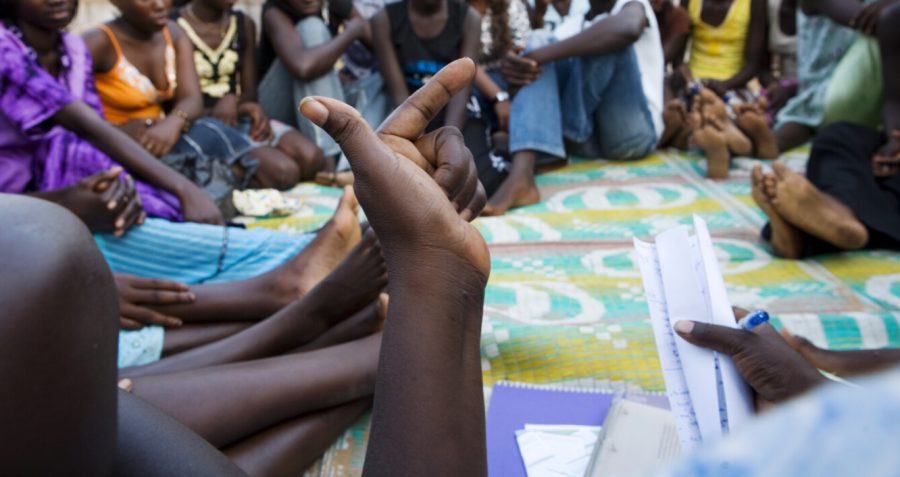Mobilising women and girls in climate justice advocacy

Key information
- Organisation: Education as a Vaccine (EVA)
- Countries: Nigeria
- Region: Western and Central Africa
- Stage of innovation: Stage 3: Pilot
- Start date: 2021
- End date: Ongoing
- Type of innovation: Conceptual innovation: new ways of looking at problems, challenging assumptions, or both
- Funder: African Women’s Development and Communications Network (FEMNET)
Summary of intervention
The climate crisis is a growing issue in Africa that requires urgent action. From health emergencies to food insecurity, the impact of climate change challenges human existence, especially on a continent where multiple crises already exist. As with other issues, women, girls, and other vulnerable populations continue to disproportionately experience the negative impacts of the climate crisis but traditionally do not participate in policy processes — especially at a local level.
In 2021, Education as a Vaccine (EVA) joined a consortium of African activists to mobilise women’s groups to advocate for protective and human rights-based policy change to drive climate policies that enable Africans, and Nigerians in particular, to thrive and live in a healthy environment. EVA mapped diverse women’s and girls’ groups, assessing their needs and priorities within the climate justice movement. Young women were trained in advocacy, learning how to frame key messages and develop calls to action using social media and short videos. This built collective capacity to participate in climate processes at regional and global levels. Young women are now leading in highlighting the interconnectedness between climate change and the multiple inequalities that women and girls experience, including gender-based violence. As a result, some government stakeholders have committed to prioritising women’s and girls’ needs and rights in state climate plans.
learnings
The policy environment has been challenging and unstable. In particular, due to elections in Nigeria, restrictions in sharing information on anything criticising existing social conditions threatened to impede advocacy. Safety concerns affected EVA’s ability to physically organise women to demand climate and gender justice. As an alternative, online platforms have given women a safe platform to connect and share their experiences and realities and disseminate digital communication materials. Initially, EVA discovered there was very little knowledge of the connection between climate justice and gender equality or the awareness of climate justice as a human rights issue and affected communities saw these crises as divinely orchestrated.
next steps
EVA will continue to build the capacity of diverse women’s groups, identify opportunities and facilitate spaces for women and girls to demand climate justice. At a local level, it will communicate women’s experiences and narratives to advocate for policy-makers to place women at the centre of solutions. EVA plans to expand the project’s reach from the existing three states.
sustainability
Putting women at the centre of advocacy and having them lead so passionately has raised the consciousness of their peers and other young people on climate justice. Deliberately connecting them to digital platforms where they can share and learn from others is increasing agency and understanding, creating a more wide-reaching desire for change and mobilising others to advocate for policies and practices that will advance climate justice beyond the geography and life span of the project.

